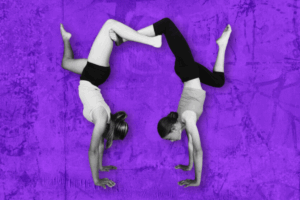The arrival of children in our lives impacts us in so many ways, most of them really wonderful!
An area that people are often nervous about is the impact of children on their sleep. Research tells us that 40% of people with young children report poor sleep because of their children. When we have a newborn baby we expect that our sleep will be disturbed, but we may not feel so accommodating of this as our children get older! So whilst parenting is a 24-hour a day position, there are absolutely things we can do to help our children to sleep well, and also to maximise our own sleep as parents.
Sleep well and everything else follows
Sleep is an absolutely fundamental part of our overall health and wellbeing. When we sleep well we support our immune function, our brain function and our emotional wellbeing. Poor sleep makes us more vulnerable to anxiety, depression and other mental health conditions. Sleep also interacts with our diet by impacting on the hormones that control our appetite. Research has shown that when we are sleep-deprived we crave different types of food to when we are well-rested. This may not come as a surprise, but the kinds of food we crave when we are exhausted are not of the leafy green variety! And having enough energy to exercise is often contingent on the quality of sleep we achieve. After a terrible night’s sleep, who feels like going for a run? According to Matthew Walker, Neuroscientist and Sleep Researcher,
“Sleep is the single most effective thing we can do to reset our brain and body health each day”.
Quality and quantity
To maximise the benefits of sleep, it’s important to give ourselves the opportunity to achieve a good sleep. This means sleep of good quality and also the ideal quantity. Aim for 8 hours of continuous sleep each night; this has been shown to be the right amount of sleep for the vast majority of adults. This may not always be possible, but keep this as your goal! The first 3 to 4 hours of our sleep is where we experience our deepest and most restorative sleep, so ideally this sleep is uninterrupted.
Bedtime routines are important for adults too
To prepare your mind and body for sleep it is helpful to develop a consistent, relaxing and enjoyable routine in the lead up to bedtime. We know about the benefits of creating bedtime routines for our children, but may not realise the value of this for ourselves! A nightly ritual is a wonderful way to wind down in preparation for sleep. We love quiet activities, a warm bath, a cup of herbal tea and reading in bed before lights out. These nightly rituals help our brain to enter a calm state, which in turns allows our biological sleep drives to work their magic.
The ideal sleeping environment for adults looks a little different to that for children. While children may feel more comfortable sleeping in a room with a night-light so that they can orientate themselves when they wake up, find their comfort object/dummy etc, adults sleep better in a dark room. Being exposed to natural light after waking up in the morning is also useful to help regulate our circadian rhythm (body clock). It is important not to overheat your bedroom; a temperature of around 18’C is ideal for adults. Think cooler bedroom & warmer bed, layering with blankets and bedding in winter. We also know that maintaining a consistent bedtime and morning wake time is better for our bodies. While sleep in’s are lovely and feel so luxurious as a parent, they can confuse our circadian rhythm. So where possible, try to keep your bedtimes and wake time’s to within a half-hour range.
Switch off
If you are struggling to fall asleep or stay asleep overnight, there are some simple changes that can help.
Research shows us that the light from screens can interfere with the production of our sleepy hormone, melatonin, so we recommend avoiding all screens in the hour before bed. The other things to avoid before bedtime are strenuous exercise, alcohol, and large meals. Avoiding caffeine in the afternoon and evening can also help us fall asleep more quickly, as caffeine overrides the feelings of tiredness we experience as our bedtime approaches, tricking the brain into staying alert. Removing clocks from bedrooms can help those who feel anxious about falling asleep and find themselves monitoring the time. Clock-watching often increases the anxiety around sleep, which in turn impacts on the ability to fall asleep. We need a calm mind to sleep!
Be assured that for both you and your children, sleep is something that can be improved. Poor sleep does not need to be a chronic condition! There are some wonderful resources online, along with some fabulous professionals who specialize in improving sleep for children and adults. It is worth prioritising sleep as a really important part of our wellbeing and mental health.
Calm Space Psychology is a therapeutic haven dedicated to infusing calm into your mind, body and life with a proven approach to sleeping and living well. Sleep is their specialty.






